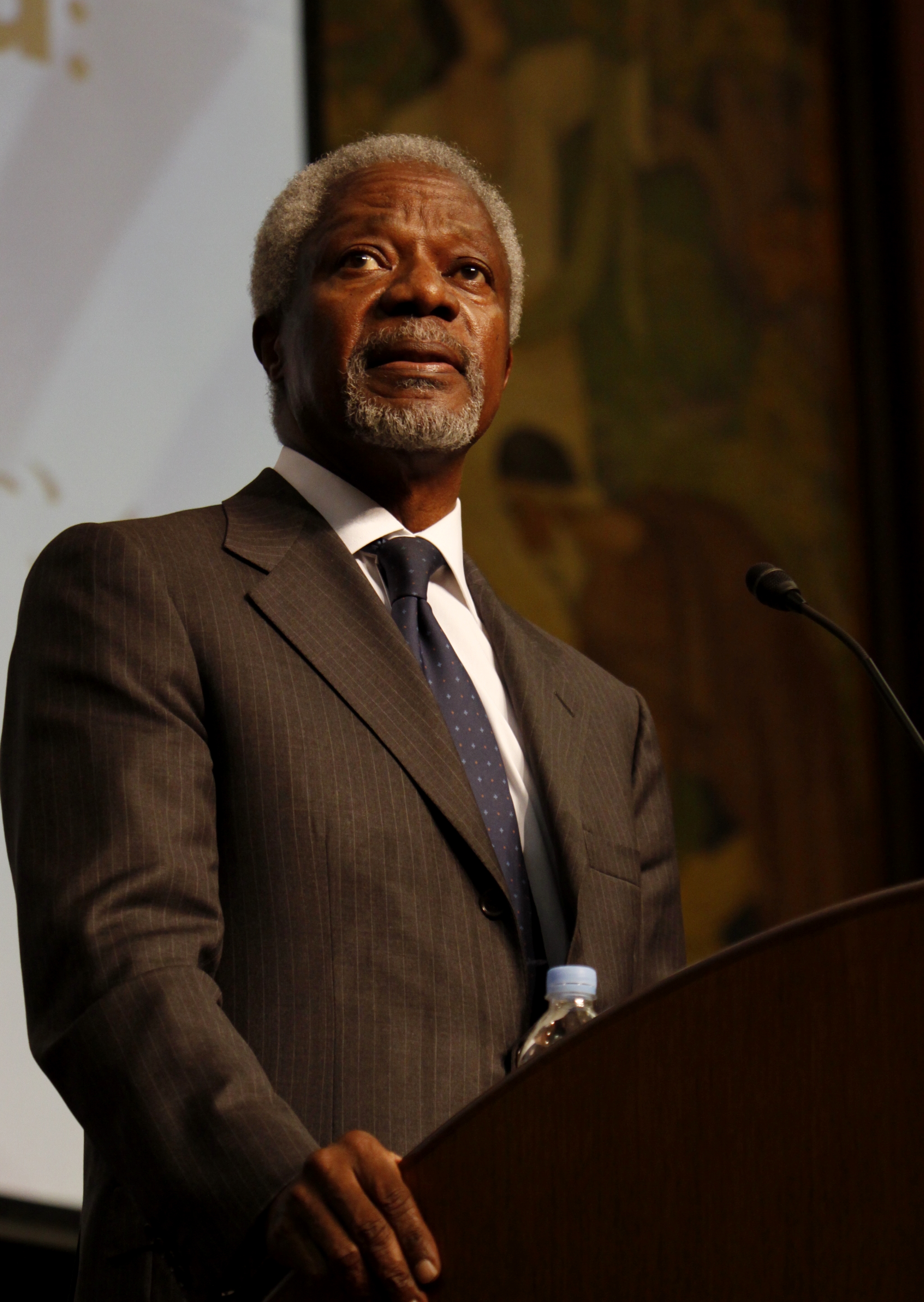Kofi Annan for the Road Safety and Urban Mobility Regional Workshop
Before his death on 18 August 2018, Kofi Annan had agreed to speak at the annual Road Safety and Urban Mobility Regional Workshop in Accra, Ghana, scheduled for 20-21 August 2018. Though Mr. Annan is no longer with us, his message remains as important and relevant as ever. What follows are the remarks Kofi Annan had prepared to deliver as a keynote address:
Globally, every year more than 1.2 million people die on the roads, an estimated half of these lives are lost in urban areas. In Africa, road crashes are estimated to claim over 300,000 lives each year, despite the continent’s relatively low level of motorisation and road density. Compare this to one of the most well-known causes of death on the continent, malaria, which claims 400,000 lives every year.
Road accidents place a heavy burden on both national economies and households as many of the victims are young and economically active people who are providing for their families and relatives. Experts estimate that road traffic deaths and injuries in low- and middle-income countries cause economic losses of up to 5% of GDP. 6. In Africa, the situation is particularly severe due to rapid urbanisation, motorisation, and population growth. The challenges around road safety and urban mobility are huge, but substantial progress is possible.
The Sustainable Development Goals provide the global community with a strong mandate to take concerted action on critical issues. The SDG target 3.6 aims to halve the number of global deaths and injuries from road traffic accidents by 2020. Target 11.2 aims to provide safe, affordable, accessible and sustainable transport systems for all by 2030. These are very ambitious and important goals.
The role of governments is vital in working towards these commitments. But it is not governments’ responsibility alone. It requires cooperation and partnership between every sector of society. While I do not claim to be an expert on the issues, let me set out a few priorities as I see them.
First, the complexities around road safety and urban mobility call for a holistic, cross-sectoral approach rather than isolated actions. Too often the links between road safety, health, land use, housing, and mobility are not considered; so policies are developed and implemented in isolation. We need to adopt an integrated approach to policy-making and foster policy coherence to ensure that co-benefits and trade-offs are considered and that appropriate safeguards are put in place.
Second, we have to make sure that road safety becomes both a public health and a development priority for Africa. For every city, it is absolutely essential to keep its inhabitants healthy and for this we must strive for a massive reduction in road fatalities and injuries. We need to prioritise safety during the planning of urban transport projects, invest in innovative infrastructure to improve the safety of traffic, and adopt appropriate safety regulations and policies. Many countries have shown that rolling out minimum safety standards for vehicles, establishing low-speed zones in urban areas, and adopting laws on the use of helmets, seat-belts and child restraints, are effective measures to save lives. Although progress has been made, enforcement of safety laws remains a challenge in many African countries. A special focus should be put on the needs of vulnerable road users such as pedestrians, cyclists, and motorcyclists, who are disproportionately affected by road crashes. In Ghana, vulnerable road users make up around 70% of people killed in road traffic crashes every year. As highlighted in UN Habitat’s New Urban Agenda, improving road safety also requires dealing with broader issues of equitable access to mobility and the promotion of sustainable modes of transport, particularly safe and affordable public transport. The benefits in terms of economic growth, quality of life, and the climate can be huge.
Third, we must share good practices on road safety and mobility and learn from the experiences of other countries and cities. In many places, we have seen that a massive reduction in road fatalities and injuries is possible. For example, Bogotá, the capital of Colombia, reduced its traffic fatality rate by over 60% in the ten years between 1996 and 2006 by prioritizing improved urban mobility and road safety. There are valuable lessons to be learned from this success. Furthermore, new technologies and innovations provide us with opportunities to improve transport management while reducing congestion and pollution. It is essential that we place a much bigger emphasis on quality data, an area in which most African countries are lagging behind. Governments must step up their efforts to modernise their road crash data systems to enable evidence-based decision making, thereby saving lives on the continent’s roads.
Thankfully, we are seeing promising examples of leadership. Earlier this year, the World Bank, the International Automobile Federation, and the International Transport Forum, established the first regional road safety observatory in Africa. This observatory will support African countries’ efforts to reduce road fatalities by exchanging data and knowledge, sharing best practices, and scaling up effective policies across the region. We clearly have an ambitious agenda ahead of us, but I am confident that we can turn aspiration into action. Considering the approaching 2020 and 2030 targets, we have a vested responsibility to act on the international, regional, national and local levels. By working together to improve road safety and urban mobility, we can build a safer world for all people who rely on our roads and transport systems every day.



